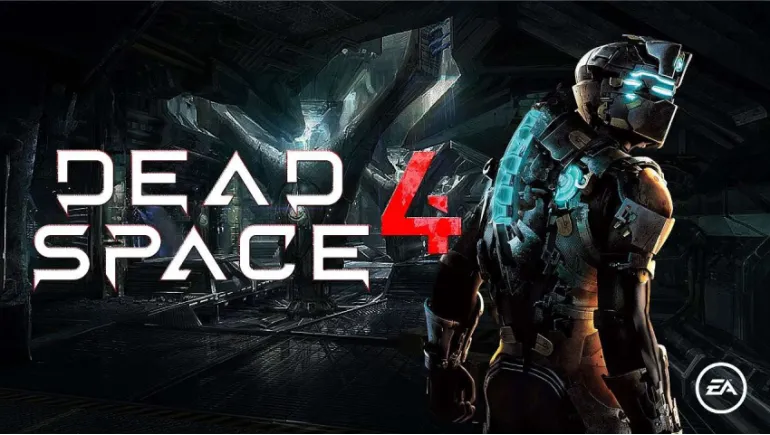
The Dead Space series remains one of the most beloved franchises in survival horror gaming. Its intense atmosphere, gripping narrative, and innovative gameplay mechanics have made it a cult classic among fans. However, news that Electronic Arts (EA) has rejected a pitch for Dead Space 4 has left fans disappointed and speculating about the future of the franchise.
In this blog, we’ll explore the history of Dead Space, the reasons why EA may have turned down the pitch, and what this decision means for the series and its dedicated fanbase.
The Dead Space franchise debuted in 2008, developed by Visceral Games and published by EA. The first game was widely praised for its chilling atmosphere, creative dismemberment mechanics, and compelling story centered around Isaac Clarke, a systems engineer battling necromorphs aboard the USG Ishimura.
The success of the original game led to two sequels:
Despite its critical acclaim, declining sales and EA’s shift toward live-service games led to the closure of Visceral Games in 2017, effectively putting the franchise on ice.
Fans were ecstatic when EA announced a Dead Space remake, developed by Motive Studio, in 2021. Released in early 2023, the remake of the original game modernized visuals, refined gameplay mechanics, and reintroduced the series to a new generation of players. The remake’s success reignited hope for a potential continuation of the series, with fans clamoring for a true sequel in the form of Dead Space 4.
However, reports now suggest that a recent pitch for Dead Space 4 was rejected by EA, leaving fans questioning the company’s commitment to the franchise’s future.
One of the most plausible reasons for rejecting the Dead Space 4 pitch is the financial risk associated with AAA single-player games. Despite the success of the Dead Space remake, EA may still view survival horror as a niche genre with limited mainstream appeal.
In an era where live-service games like Apex Legends and FIFA Ultimate Team generate recurring revenue, EA could be hesitant to invest in a standalone, story-driven game that doesn’t offer long-term monetization opportunities.
EA may be concerned about franchise fatigue. Dead Space 3’s pivot to action-oriented gameplay alienated some of its core audience, and the series hasn’t seen a new installment in over a decade. There’s a chance EA fears that a sequel might not resonate with a modern audience, even with the resurgence of interest following the remake.
The survival horror market has seen a resurgence in recent years, with franchises like Resident Evil and new titles such as The Callisto Protocol (developed by Dead Space creator Glen Schofield) capturing players’ attention. EA may feel that Dead Space 4 would struggle to stand out in an increasingly crowded genre.
Developing a game that lives up to the expectations of a fanbase as passionate as Dead Space’s is no small feat. EA might be cautious about committing resources to a project that could face significant development hurdles, including balancing innovation with the legacy of the original trilogy.
The news of EA rejecting the Dead Space 4 pitch has sparked a range of emotions among fans:
The rejection of Dead Space 4 comes at a time when the survival horror genre is experiencing a renaissance. Games like Resident Evil Village, The Last of Us Part I, and Silent Hill 2 Remake have proven that there’s a strong appetite for story-driven horror games.
Dead Space 4 could have capitalized on this momentum, blending the series’ hallmark elements—innovative gameplay, gripping atmosphere, and narrative depth—with modern gaming technologies like ray tracing and advanced AI. EA’s decision to pass on the pitch may be seen as a missed opportunity to reinvigorate a beloved franchise.
While the rejection of Dead Space 4 is a setback, it doesn’t necessarily mark the end of the franchise. Here are some potential paths forward:
Following the success of the first remake, EA might consider remaking Dead Space 2 or even Dead Space 3 with modern updates. This would allow the company to gauge continued interest in the franchise while leveraging existing assets.
If EA decides not to pursue Dead Space 4, fans may look to Glen Schofield’s The Callisto Protocol and other indie developers for spiritual successors. These games could capture the essence of Dead Space without being tied to the franchise.
EA may choose to revisit Dead Space 4 in the future, especially if the remake continues to perform well and demonstrates long-term demand for the series.
The Dead Space universe has rich lore that could be explored in other forms, such as animated series, novels, or even a live-action adaptation. This approach could keep the franchise alive while EA assesses its gaming future.
The rejection of the Dead Space 4 pitch is undoubtedly disappointing for fans who’ve long awaited a new installment in the series. However, it’s important to remember that the gaming industry is ever-evolving, and decisions like these are often revisited based on market conditions and fan demand.
For now, fans can hold onto the success of the Dead Space remake as evidence that the franchise still has a dedicated audience. Whether through remakes, spiritual successors, or a future sequel, the legacy of Dead Space isn’t disappearing anytime soon.
As we wait for EA’s next move, one thing is clear: the passion of Dead Space fans is as alive as ever, and their voices will undoubtedly continue to advocate for the return of one of gaming’s most iconic survival horror franchises.












Comments
There are no comments for this Article.